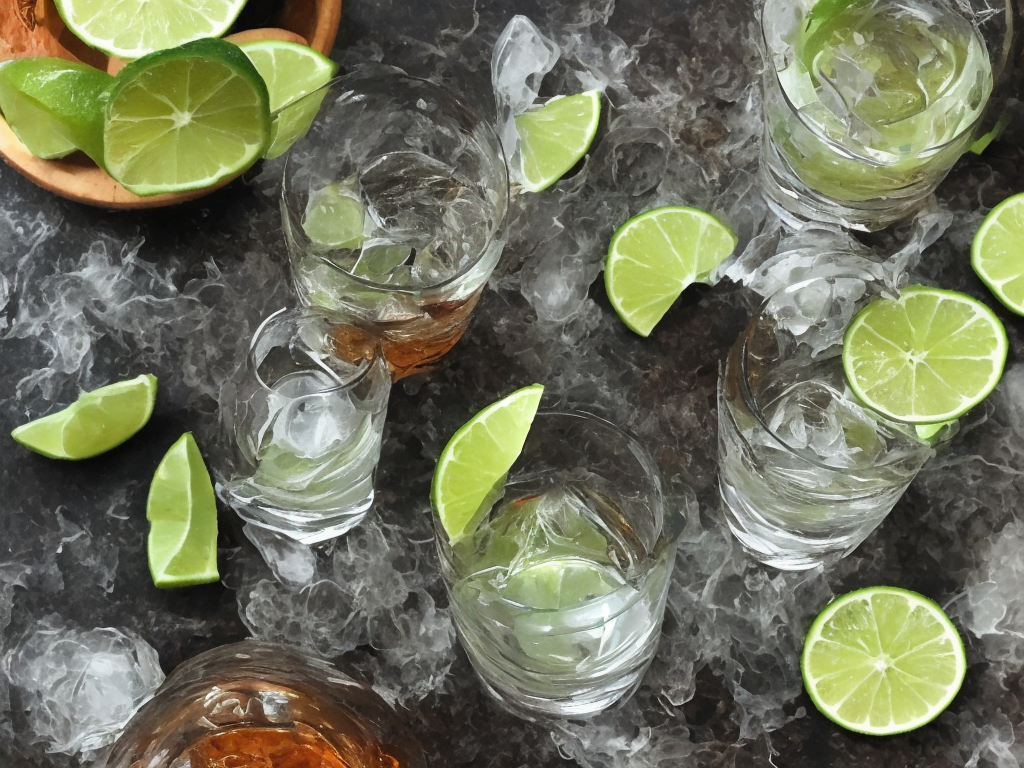
Mezcal and tequila are two popular spirits that come from Mexico and are frequently consumed around the world. Although they both originate from the agave plant, there are differences in the process of production, flavor profiles, and regulations. In this article, we will delve into the key differences between mezcal and tequila.
Production process
Tequila can only be made from the blue agave plant, specifically from the Weber blue agave variety grown in specific regions of Mexico, such as Jalisco, Guanajuato, Michoacán, Nayarit, and Tamaulipas. The agave plants are harvested, cooked, and shredded, and then they are pressed to extract the juice. The juice is then fermented and distilled at least twice in copper pots. The result is a clear liquid that is later aged in oak barrels to produce reposado (aged for at least two months up to one year), añejo (aged for at least one year up to three years), or extra añejo (aged for at least three years).
Mezcal, on the other hand, can be made from various types of agave plants, such as espadín, tobala, madrecuixe, amongst others, that are grown in nine different states across Mexico. The process starts with the harvesting of the agave plants, which are traditionally cooked in stone ovens lined with wood or charcoal. The cooked agave is crushed by a horse-powered mill, extracting the juice, which is subsequently left to ferment in open-air vats using naturally occurring yeasts. The fermented liquid is then distilled twice in small copper or clay stills, resulting in a smoky and flavorful spirit. Unlike tequila, mezcal has no strict aging regulations, but some brands offer aged versions in oak barrels.
Flavor profile
Tequila is known for a clean and citrusy flavor with a hint of sweetness that comes from the cooked agave. Tequila can have a mild to moderate smoky taste depending on the aging process. The unaged version of tequila, called blanco or silver, is the purest expression of the agave plant's flavor. Adding aging to the distillation process lends tequila more complex flavors such as vanilla, caramel, and woody notes. Añejo and extra añejo tequilas are generally sipped and served in cognac glasses, while blanco or silver tequila is used as a base for cocktails such as margaritas and Palomas.
Mezcal, on the other hand, is known for its distinctive smoky and earthy flavor, which results from the cooking process. The pit-roasting and wood-fired cooking give mezcal its signature smokiness that varies depending on the type of wood used, such as mesquite, oak, or pine. Mezcal also has a more complex flavor profile thanks to its fermentation process and various agave species. Mezcals from different agave varieties can range from floral, tropical fruit, and herbal notes to earthy, nutty, and spicy notes.
Regulation
Both tequila and mezcal are protected by Appellation of Origin (AO), which means they can only be produced in specific regions of Mexico. Tequila, which is a type of mezcal, is produced under the regulatory body Consejo Regulador del Tequila (CRT) under strict regulations. These regulations define the specific areas where blue agave can be grown and the approved methods of production of tequila. Under these regulations, tequila must be made from 100% blue agave, although a mix of up to 49% of other sugars and additives may be used to produce cheaper tequilas called mixto. In contrast, mezcal is produced under the regulatory body Consejo Regulador del Mezcal (CRM), which defines the regions where mezcal can be produced and the approved varieties of agave that can be used in the production process. Mezcal regulations also allow for a wider range of production methods and agave varieties than those used for tequila.
Conclusion
In summary, while both mezcal and tequila share some similarities, such as their origins in the agave plant and their popularity in Mexico and worldwide, they differ in several significant aspects. Mezcal is a broader category that encompasses a variety of agave species and diverse production methods that result in a smoky and complex flavor profile. In contrast, tequila is tightly regulated under the CRT, with strict guidelines governing the type of agave used, production methods, and aging processes, resulting in a clean and citrusy taste with more subtle smokiness. Therefore, whether you prefer it neat, on the rocks, or in a cocktail, both mezcal and tequila offer unique flavor experiences worth exploring.
 Self-Instruct
Self-Instruct